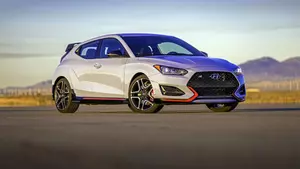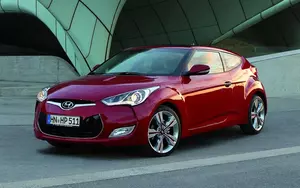
| Vehicle | Curb weight | Difference from world's smallest | Weight to power ratio | 0—60 mph acceleration ratio | Consumption ratio |
|---|---|---|---|---|---|
| 2.0 Turbo GDI |
1409 kg / 3107 lbs |
984 kg (2170 lbs) heavier | 5 kg to 1 hp | - |
150 kg/L (331 lbs/L) |
| Vehicle | 2.0 Turbo GDI |
|---|---|
| Curb weight |
1409 kg / 3107 lbs |
| Difference from world's smallest | 984 kg (984 lbs) heavier |
| Weight to power ratio | 5 kg to 1 hp |
| 0—60 mph acceleration ratio | - |
| Consumption ratio |
150 kg/L (331 lbs/L) |

| Vehicle | Curb weight | Difference from world's smallest | Weight to power ratio | 0—60 mph acceleration ratio | Consumption ratio |
|---|---|---|---|---|---|
| 2.0 MPI |
1240 kg / 2734 lbs |
815 kg (1797 lbs) heavier | 8 kg to 1 hp | - |
159 kg/L (351 lbs/L) |
| 1.6 GDI |
1315 kg / 2900 lbs |
890 kg (1963 lbs) heavier | 7 kg to 1 hp | - |
169 kg/L (373 lbs/L) |
| Vehicle | 2.0 MPI |
|---|---|
| Curb weight |
1240 kg / 2734 lbs |
| Difference from world's smallest | 815 kg (815 lbs) heavier |
| Weight to power ratio | 8 kg to 1 hp |
| 0—60 mph acceleration ratio | - |
| Consumption ratio |
159 kg/L (351 lbs/L) |
| Vehicle | 1.6 GDI |
| Curb weight |
1315 kg / 2900 lbs |
| Difference from world's smallest | 890 kg (890 lbs) heavier |
| Weight to power ratio | 7 kg to 1 hp |
| 0—60 mph acceleration ratio | - |
| Consumption ratio |
169 kg/L (373 lbs/L) |

| Vehicle | Curb weight | Difference from world's smallest | Weight to power ratio | 0—60 mph acceleration ratio | Consumption ratio |
|---|---|---|---|---|---|
| 1.6 |
1255 kg / 2767 lbs |
830 kg (1830 lbs) heavier | 7 kg to 1 hp | 157 kg/s (346 lbs/s) |
182 kg/L (401 lbs/L) |
| Vehicle | 1.6 |
|---|---|
| Curb weight |
1255 kg / 2767 lbs |
| Difference from world's smallest | 830 kg (830 lbs) heavier |
| Weight to power ratio | 7 kg to 1 hp |
| 0—60 mph acceleration ratio | 157 kg/s (346 lbs/s) |
| Consumption ratio |
182 kg/L (401 lbs/L) |

| Vehicle | Curb weight | Difference from world's smallest | Weight to power ratio | 0—60 mph acceleration ratio | Consumption ratio |
|---|---|---|---|---|---|
| 1.6 GDI |
1220 kg / 2690 lbs |
795 kg (1753 lbs) heavier | 9 kg to 1 hp | 124 kg/s (273 lbs/s) |
197 kg/L (434 lbs/L) |
| Vehicle | 1.6 GDI |
|---|---|
| Curb weight |
1220 kg / 2690 lbs |
| Difference from world's smallest | 795 kg (795 lbs) heavier |
| Weight to power ratio | 9 kg to 1 hp |
| 0—60 mph acceleration ratio | 124 kg/s (273 lbs/s) |
| Consumption ratio |
197 kg/L (434 lbs/L) |